 Giuseppe Verdi |
SATURDEE OPRY
LINKS |
 Giacomo Puccini |
 Giuseppe Verdi |
SATURDEE OPRY
LINKS |
 Giacomo Puccini |
|
Saturdee Opry Links # 140:
Boffo Edition
Saturdee Opry Links is/are here. This
is the boffo performance edition,
meaning the SOL research staff (which, as you know, numbers at least
one) has carefully winnowed down ten performances that are especially
fine, if not awe-inspiring, from the vast Youtube universe. The choices
were scientifically balanced, gender-wise, or close to it (though I
suppose the
LGBTQIA2S+---yes, that is the full, ridiculous acronym---would argue
that.) As usual, there will be forgotten singers, contemporary
opera stars, plus: interviews, two different "Romeo and Juliets," women
in pants, a brooding Russian, a mourning queen, a smartass poet, a
lovesick womanizer, and the most phenomenal two minutes of operatic
singing ever recorded (so says critic Fred Cohn.) Salud.
http://www.whatsgoodattraderjoes.com/2016/10/trader-joes-boffo-bar.html Verdi, "Luisa Miller." One of the composer's great "middle period" operas. As the Lyric Opera of Chicago summarized, "Verdi’s sumptuously beautiful romantic drama tells the story of sweet, vulnerable Luisa, who loves Rodolfo, the son of a ruthless, unethical nobleman whom Luisa’s own father loathes." The overture is almost an opera unto itself, really plunges you into the "Luisa Miller" atmosphere.
Speaking of plunging you into atmosphere. . .

Mario Lanza
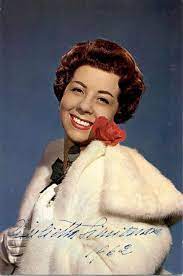
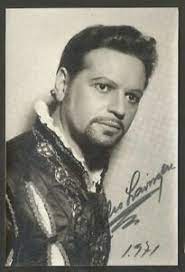
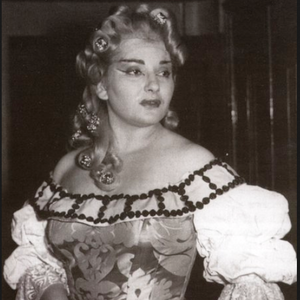
Giulietta
Simionato Pedro
Lavirgen
Maria Callas as "Armida"
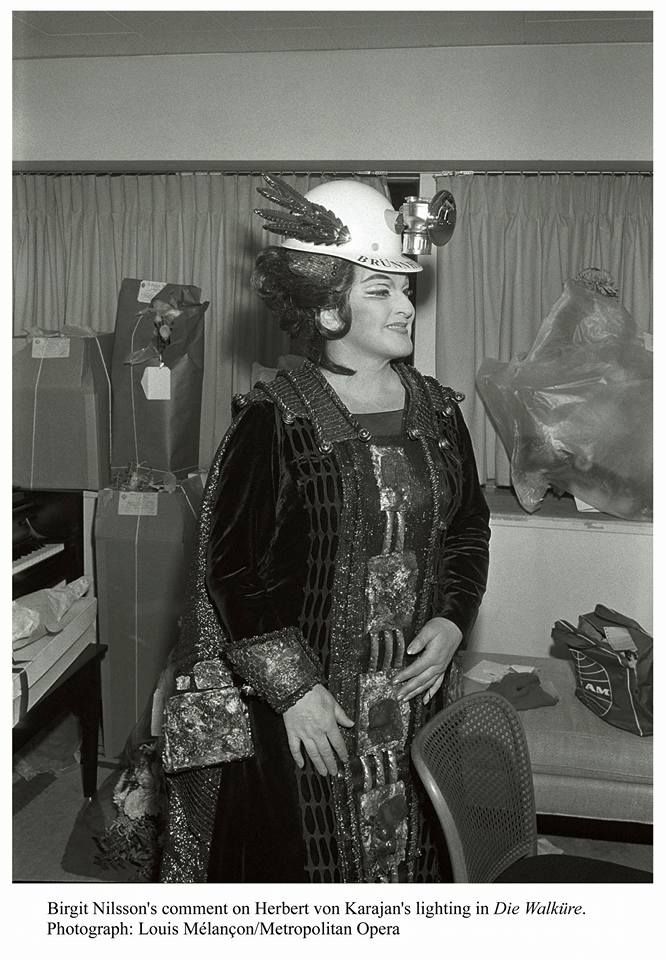
Birgit Nilsson comments on Van
Karajan's
insane lighting for "Die Walkure."
1.
Verdi's "Luisa Miller," though less frequently performed than his "hit" operas, has much to offer. Both story and music are gripping, highly expressive, with compelling drama and beauty. Including this spectacular, heart-rending aria, "Quando le sera al placido," here sung spectacularly by. . .Placido. (Domingo, of course. Badda-bing.) "Luisa Miller" also boasts the only a cappella, or unaccompanied, quartet in all of opera. (Note: the melodic part of the aria that follows the declamatory portion begins around 2:55.) Setting: the gardens in the castle of Count Walter, the Tyrol, early 17th century Synopsis: Rodolfo has received a letter from Luisa---written under threat---saying that she never loved him. He is crushed and reminisces about the happy times they had together. LINK HERE: https://www.youtube.com/watch?v=iNAKKjOUfqQ Translation: (scroll down past the various versions of the aria by other tenors---though you are invited to compare them with Domingo) https://medicine-opera.com/2018/04/quando-le-sere-al-placido/ NOTE: No, I don't know why the photo from the video does not show up here. Nothing but technical problems in posting Opry Links today. Photo below: Domingo sang both the baritone and tenor roles in "Luisa Miller," decades apart. SOL EXTRA!
Brief introduction to
Verdi's "Luisa Miller."
link: https://www.youtube.com/watch?v=UGlg384H4jM 2. For our second entry in the boffo edition of Saturdee Opry Links---comprised entirely of extraordinary performances---here is the forgotten Spanish tenor, Pedro Lavirgen. There isn't much biographical data about him on-line. Seems the poor fellow, who had a natural inclination for singing from tyke-hood, learned much while hospitalized for three years as a boy, where he became part of a choir of patients. Dropping out of high school to take classes at a music conservatory, he later sang in the chorus of the Teatro de la Zarzuela in Madrid. It wasn't until meeting his greatest teacher, the lesser known Italian tenor, Don Miguel Barrosa, that Lavirgen honed his craft to success. Much of his career was spent in Europe, South America, but he also sang in every major U.S. opera house, and performed Puccini's "Tosca" at the Met in 1976 (or 1968, depending on which report you believe) and "Turandot" at La Scala. Here is this wonderful, handsome singer with an heroic assaying of an heroic aria, "Di Quella Pira," from Verdi's "Il Trovatore." Live on stage in Barcelona in 1973. LINK HERE: https://www.youtube.com/watch?v=DTG2rsxx8bo Setting: A room adjoining the chapel at Castellor, 1409. Synopsis: Manrico has discovered that his mother Azucena has been captured by the Count of Luna and is about to be burned at the stake. Furious, Manrico calls together his soldiers and sings valiantly of how they will save Azucena from death. Translation: http://www.aria-database.com/search.php?individualAria=514 More about Lavirgen: https://www.operanews.com/Opera_News_Magazine/2014/3/Recordings/Pedro_Lavirgen__Famous_Opera_Arias.html 3. 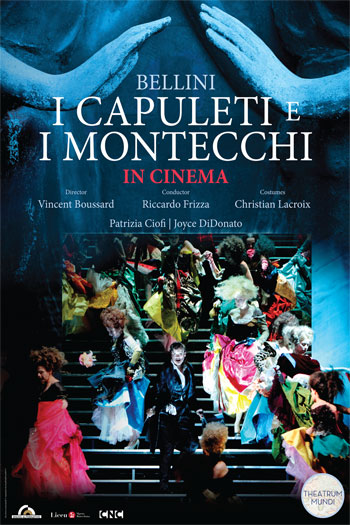
There are seven operas
based on "Romeo and Juliet," but just two are still
performed: Gounod's gorgeous 1867 version, chocked full of
memorable arias and duets, and the 1830 opera, "I Capuleti e
i Montecchi" ("The Capulets and Montagues"), by the pioneer
of the legato line, Vincenzo Bellini. Here is a very moving
concert performance of the aria, "Oh! Quante volte" ("Oh!
How much time") by Angela Gheorghiu, which should leave one
touched, possibly dazzled. (Note: the aria is in two
sections: a declamatory introduction, and the "melodic"
portion, which begins around 4:52. I recommend, however,
listening to both in order to absorb the full impact and to
appreciate Gheorghiu's singing.) Yes, it's essentially, "O,
Romeo, Romeo, wherefore art thou Romeo? Deny thy father and
refuse thy name. Or if thou wilt not, be but sworn my love.
And I'll no longer be a Capulet."
https://www.youtube.com/watch?v=zXCPmMfCMpU Setting: Giulietta's balcony in the palace of Capulet, Verona, Italy, 15th century Synopsis: Giulietta worries because she does not know where Romeo has gone. She is in love with him and waits with ardor for him to come. She wishes to see his silhouette in the light of the day and hear his sigh which reminds her of the breeze. Translation: http://www.aria-database.com/search.php?individualAria=581 4. Some great opera singers must overcome poverty. Some who can't afford educations wind up teaching themselves, picking the art up as best they can. Some must transcend parents' desire that they become doctors or lawyers (and, in some cases, this means achieving those goals, and then abandoning them for the stage.) Giulietta Simionato had to defeat her mother and Il Duce, in that order, to become a great operatic mezzo-soprano. It's a toss-up who was more obstructive. Her mother once famously remarked, "I would kill my daughter with my own hands rather than see her become a singer." Well. For some reason---probably tradition and chauvinism---her entire family joined the matriarch in fighting the girl's innocent, early love of song. But Ma kicked the bucket in 1925, and daughter never looked back. She triumphed with a rather aptly titled 1927 musical comedy film, "Nina, Don't Be Stupid." Then came the fascists. For the next fifteen years of her career, Mussolini's muscle reportedly kept Simionato from due success and acclaim (one must assume she crossed the wrong person, or was deemed non-supportive of Italian fascism.) It was her 1947 debut in Ambroise Thomas's "Mignon," a couple years after Mussolini finished swinging, that changed everything. (She co-starred, by the way, with young Giuseppe Di Stefano.) Simionato went on to become one of the most acclaimed opera stars of the 20th century. Was it worth it? Um, apparently not! “If I had it to do all over again," she once said, "I wouldn’t become a singer. I suffered too much.” Sigh. Here is this wonderful artist suffering for her art, specifically "Oh tu bell'anima "from Bellni's opera" I Capuleti e i Montecchi." This is a "trouser role," folks, in which a mezzo (or contralto) sang the part of "Romeo" (this was a long-standing tradition, done largely for musical reasons.) Correct: Juliet sings Romeo. Setting: Giulietta's tomb, Verona, Italy, 15th century Synopsis: Romeo has entered Giulietta's tomb, and sings of his despair at her death. LINK: https://youtu.be/ZH0TGjZAxro Italian: Tu sola, o mia Giulietta, m'odi tu sola. Ah! vana speme! `E sorda la fredda salma di mia voce al suono... Deserto in terra, abbandonato io sono! Deh! tu, deh! tu bell'anima, che al ciel, che al ciel ascendi, a me, a me rivolgiti, con te, con te mi prendi: così, così scordarmi, così, così lasciarmi non puoi, non puoi, bell'anima, nel mio, nel mio dolore, non puoi, non puoi scordarmi, non puoi bell' anima, nel mio dolor, non puoi, non puoi scordarmi, non puoi bell' anima, nel mio dolor, non puoi, non puoi nel mio dolor, non puoi, non puoi nel mio dolor. English: You alone, my Juliet, hate me alone. Ah! vain hope! And the cold body is deaf of my voice to the sound ... Desert on earth, abandoned I am! Oh! you, Oh! you beautiful soul, who ascend to heaven, ascend to heaven, to me, to me, turn to me, with you, with you you take me: so, so forget me, so, so leave me you can't, you can't, beautiful soul, in my, in my pain, you can't, you can't forget me, you cannot beautiful soul, in my pain, you can't, you can't forget me, you cannot beautiful soul, in my pain, you can't, you can't in my pain, you can't, you can't in my pain. Ms. Simionato's obituary. She died in 2010 at 99. https://www.theguardian.com/music/2010/may/07/giulietta-simionato-obituary SOL EXTRA! 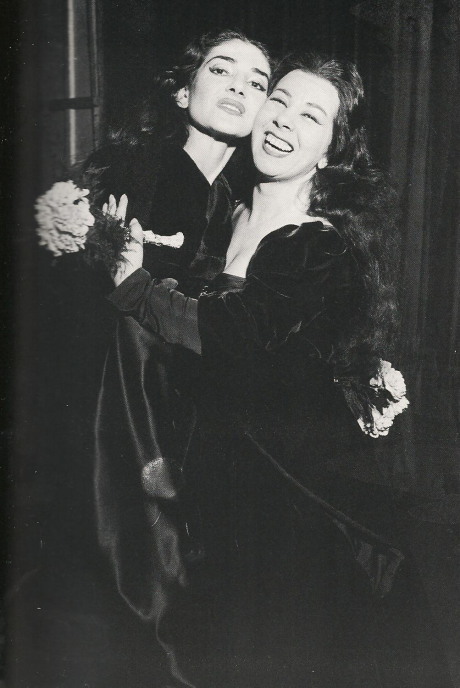 Simionato with her close friend, Maria Callas
Interview with
Giulietta Simionato.
“If I had it to do all over again, I wouldn’t become a singer. I suffered too much.” https://www.belcantosociety.org/simionato/ 5. Continuing today's Boffo Performances edition of Saturdee Opry Links, here is the mighty, ill-fated Spanish tenor, Miguel Fleta (featured many times on SOL.) Essentially ruined by wine, women, and song (he once nearly killed himself singing 100 concerts in ten months)---and bad decisions---Fleta nonetheless ruled the tenorial roost of opera stages, including the Met, during the 20's. (Please see the bio accompanying the Youtube video for more details.) Here he is with a bit of a rarity, a runaway tremendous rendition of yet another "Romeo and Juliet" aria---this one from a 1921 opera by Riccardo Zandonai. This is "Giuleitta, son io," or "Juliet, it is I," in which the protagonist bids farewell to his dead beloved, and then, to the world. https://www.youtube.com/watch?v=thJeQ-zx0DE Translation (scroll down): http://www.jkaufmann.info/CDkritik_eng/verismo71.htm SOL EXTRA!
About Miguel Fleta: all
the sorry facts. . .
http://www.operavivra.com/artists/tenors/miguel-fleta/ 6. For those who wonder how and why Russians are so, shall we say, troubled, well, it's damn cold there. And poor. And it has a damn troubled, cold, poor history. And oceans of spilled blood and chugged Vodka. Does that excuse Vlad "The Impaler" Putin and his cadre of thugs? Does that excuse the Olympics coaches abusing poor little girls with dope and browbeating? Does that excuse what is happening to Ukraine? Of course not. But it does explain the popularity mournful songs such as "O jesli b´mog vyrazit v zvuke," a Russian classic by one Malashkin ("Oh, If I Could Express Through Sound.") Sung here by the one-in-a-million tenor, Nicolai Gedda, a Swedish-Russian who performed operas in French, Swedish German, Italian, English, Czech and, yes, Russian. LINK HERE: https://www.youtube.com/watch?v=jNwdXSKU5Fs Translation: https://lyricstranslate.com/en/o-jesli-b-mog-vyrazit-v-zvuke-%D0%BE-%D0%B5%D1%81%D0%BB%D0%B8-%D0%B1-%D0%BC%D0%BE%D0%B3-%D0%B2%D1%8B%D1%80%D0%B0%D0%B7%D0%B8%D1%82%D1%8C-%D0%B2-%D0%B7%D0%B2%D1%83%D0%BA%D0%B5-oh-if.html
OR, IF YOU'D PREFER IT
with a voice more suited to that uniquely Russian brooding.
. .you can't beat this:
https://www.youtube.com/watch?v=InV2GD-tVvw 7. 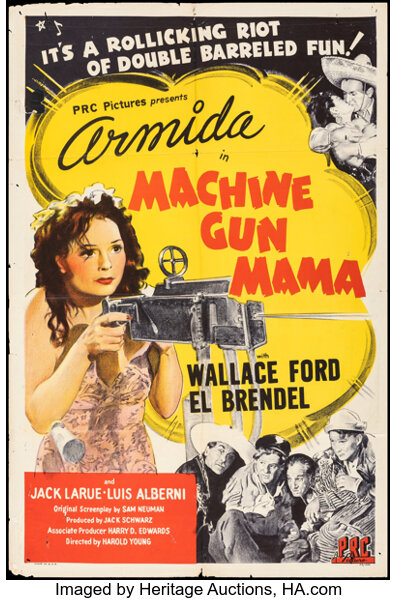 (Whoops. Wrong "Armida.") All right, boxing fans, there is boffo, and there is boffisimo, or something. Take it from brilliant opera writer/critic Fred Cohn, this is "as phenomenal a two minutes of operatic performance as exists on disc." When a learned, highly discerning critic says such a thing, that's extraordinary. Cohn is referring to Maria Callas in a live 1952 recording of the aria, "Dove son io?… Fuggì!" from the finale of Rossini's "Armida," one of the most demanding soprano roles in opera. This was the early (heavy set) Callas, before she became a self-imposed waif (out of jealousy of her petite sister, her domineering mother's favorite), so the voice is somewhat different. Now, to those unfamiliar with opera, this is liable to sound like a lot of shrill frill, but rest assured this is high art, profoundly demanding. Divorce those prejudiced ears, in other words, and try to imagine being able to sing this way. Let alone sing. . .with total emotional commitment, sincerity of heart. You know, I'm not enamored of Rossini, either, but I can put that aside to appreciate what is happening here. https://www.youtube.com/watch?v=okWyIUHTDHQ
Synopsis:
Armida reaches the three soldiers before they can sail away. She begs Rinaldo not to desert her and even offers to go into battle with him. Ubaldo and Carlo restrain Rinaldo, trying to bolster his strength, and ultimately drag him away from her. Armida struggles between love and desire for revenge ("Dove son io?… Fuggì!"). She chooses revenge, destroying the pleasure palace and flying away in a rage. More about "Armida:" https://en.wikipedia.org/wiki/Armida_(Rossini) (Thanks, Bonnie Tone.)
Translation:
Italian: ARMIDA Dove son io!... Fuggi! Lasciarmi, oimè! così Poté l'ingrato? E vivo ancora?... e palpiti Mio desolato core?... (si aggira incerta) Che fo?... Vendetta... Amore... Di voi chi udir dovrò?... Del mio trovar si può Più atroce stato! (Rimane concentrata ne' suoi pensieri). (Frattanto sorge una larva in sembianza della Vendetta). Vendetta... (scuotendosi) Ah! sì, ti miro: Te sola invoco: vieni... (Mentre vuole avvicinarsi alla larva suddetta, sorge altra larva sotto le forme dell'Amore, sospiroso e piangente). Amor... con quel sospiro Perché il mio sdegno affreni?... Forse spietato sei, Sebben tu piangi, Amor. (Verso la Vendetta). Forse pietade è in lei Cinta benché d'orror. (Pensa alquanto, poi corre alla prima larva). È ver... gode quest'anima In te, fatal Vendetta. Da me repente involati Perfido Amor; t'affretta. (Sparisce la larva dell' Amore). Se al mio poter, voi Furie, Sorde non siete ancor, Ad inseguir traetemi Un empio, un traditor.
ENGLISH (sorry---Google Translate):
Where am I! ... Flee! Leave me, alas! like this Could the ungrateful one? And still alive? ... and throbbing My desolate heart? ... (she wanders uncertainly) What do I do? ... Revenge ... Love ... Of you whom shall I hear? ... Of my find you can More atrocious state! (Remains focused in her thoughts). (Meanwhile a larva arises in semblance of Vengeance). Vendetta... (shaking) Ah! yes, I aim at you: I invoke you alone: come ... (As he wants to approach the aforementioned larva, another larva arises under the forms of Love, sighing and crying). Love ... with that sigh Why do you hasten my indignation? ... Maybe you are ruthless, Although you cry, Amor. (Towards the Vendetta). Perhaps pietade is in her Cinta although of horror. (He thinks for a while, then runs to the first larva). It's true ... enjoy this soul In you, fatal Vendetta. From me repente flew Perfidious Love; hurries you. (The larva of Love disappears). If in my power, you Furies, You are not yet deaf, To chase, take me An impious, a traitor. FRED COHN'S article: https://www.operanews.com/Opera_News_Magazine/2018/1/Recordings/ROSSINI__Armida.html 8. Here you go, keeds. SOL "auditioned" about twelve different recordings of this, all super good, but this one prevailed. Birgit Nilsson was born Märta Birgit Svensson on a farm at Västra Karup in Skåne. When she was three years old, she began picking out melodies on a toy piano her mother bought for her, and once told an interviewer that she could sing before she could walk, adding, "I even sang in my dreams." Easy to believe, considering her career. She eventually sang in church choir, took some voice lessons in order to qualify for the Royal Swedish Academy of Music in Stockholm (where she was awarded a scholarship.) The rest was gravy? Not quite. Her teachers at the Academy, she said, "almost killed me." The best teacher, said Nilsson, "was the stage." So here she is with her best teacher, on stage at the Bayreuth Festival in 1966 (Karl Bohm, conducting) with the "Liebestod," or "Mild und Leise," from Wagner's astonishing "Tristan und Isolde." One of the most revolutionary, profound, and emotionally shattering moments in music. LINK HERE: https://www.youtube.com/watch?v=665lMKUB1xc OR, if you wish to watch her sing it, in a lesser performance: https://www.youtube.com/watch?v=_mOA8pZ_I4M Setting: Tristan's castle at Karoel, Brittany, legendary times Synopsis: This is the end of the tale of the lovers brought together by a potion, and then by love. After Tristan has died, the Irish princess, Isolde, looks upon him in a trance. She believes that she sees her beloved coming back to life as she hears a ravishing melody around her. The hallucinations become stronger and stronger until, at last, she falls dead next to Tristan. Translation: http://www.aria-database.com/search.php?individualAria=989
9.
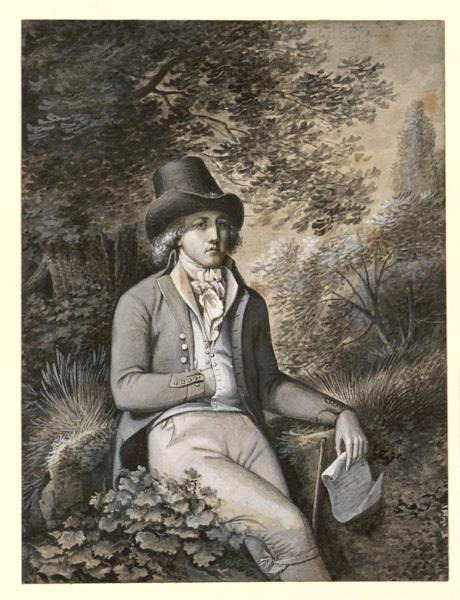
Andrea Chenier
Never taunt a poet,
especially a poor poet (are there any other kind?), and
especially if you are member of the upper crust looking to
spice up your party with a little verse recital. The great
bard and champion of the people, enemy of the ruling class,
Andrea Chenier (a real person, by the way) was a victim of
such circumstance. He was asked to do a little performing
for the gathered hoi-polloi in the ballroom of a château
during the French Revolution. Well, he did so, yes, but not
without an ulterior motive: craftily contrasting the beauty
of nature with the evil and misery created by self-adoring
humans. Finally, he simply denounced those in authority as
self-serving buffoons. Uh-oh! Yes, Chenier was sent to the
guillotine---in the opera, and in life. Here is Franco
Corelli with the captivating, even thrilling verismo
declamation, "Un di all'azzurro spazio" ("One day I looked
to the blue skies. . .") from "Andrea Chenier, by Umberto
Giordano. With English subtitles.
https://www.youtube.com/watch?v=mAxaOyIAISY Translation: http://www.aria-database.com/search.php?individualAria=49 About the real Chenier: https://en.wikipedia.org/wiki/Andr%C3%A9_Ch%C3%A9nier FINAL BOW: For those keeping score at home, the courtiers have kidnapped poor Gilda as payback to the jester, Rigoletto, for all his insults. Never mind that Rigoletto's job is to tell jokes, and "keep people honest," as is the craft of all jesters! (Being funny is a tough job, but somebody's gotta do it.) Anyhow, the courtiers think Gilda is Rigoletto's secret mistress, not his secret, deeply loved daughter. Finding her gone, the Duke---who, despite his womanizing ways, is in love with Gilda---erupts in despair. Yes, despair---manifested in two, two, two arias-in-one: "Ella mi fu rapita!" ("She was stolen from me!") and "Parmi veder le lagrime" ("I seem to see tears"). This is one of the most duly famous and loved sequences in all opera. You can feel the wringing hands, the sweat, the rage, the yearning, the despondency. A tour-de-force, if ever there was one. Now, there are many, many boffo performances of this thing (please browse Youtube and listen), but I am always partial to this performance by Mario Lanza. It's rather electric with emotion, each syllable charged, and runs the gamut from almost crooning to anguish to delicacy. Yes, at times Lanza seems to be doing as much vocal acting as singing, but that is also part of the allure, to me. I think it's possibly his greatest operatic recording. LINK HERE: https://www.youtube.com/watch?v=pSnQDqV-TBI For contrast, I give you a terrific performance of the same selection by the late, underrated Giuseppe Giacomini. It's far more consistent in tone and atmosphere than Lanza, more shot through with outrage and anger, and showcases the heft of Giacomini's dark tenor. LINK HERE: https://www.youtube.com/watch?v=gXm15gcU8Fo Translation: http://www.aria-database.com/search.php?individualAria=264 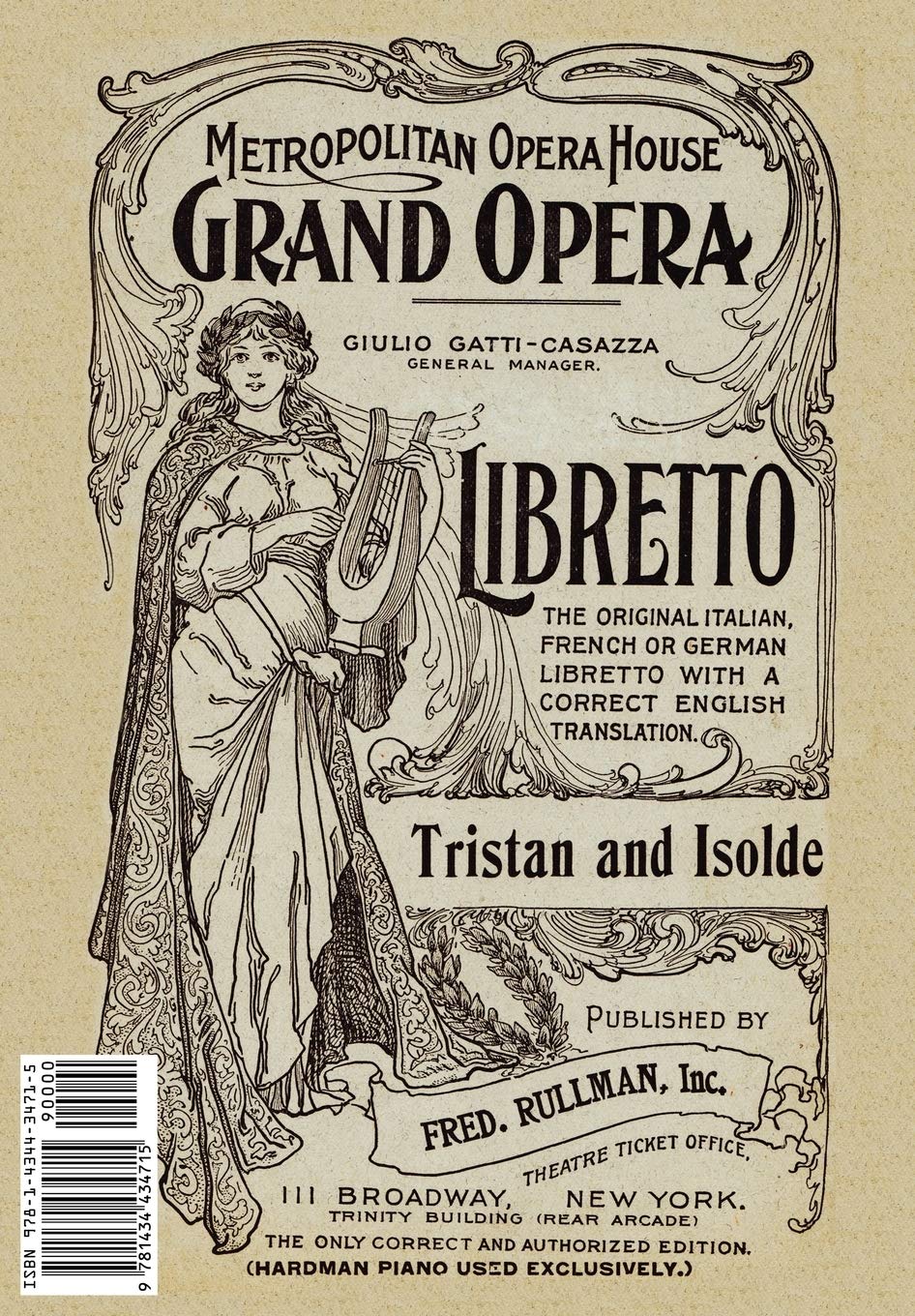
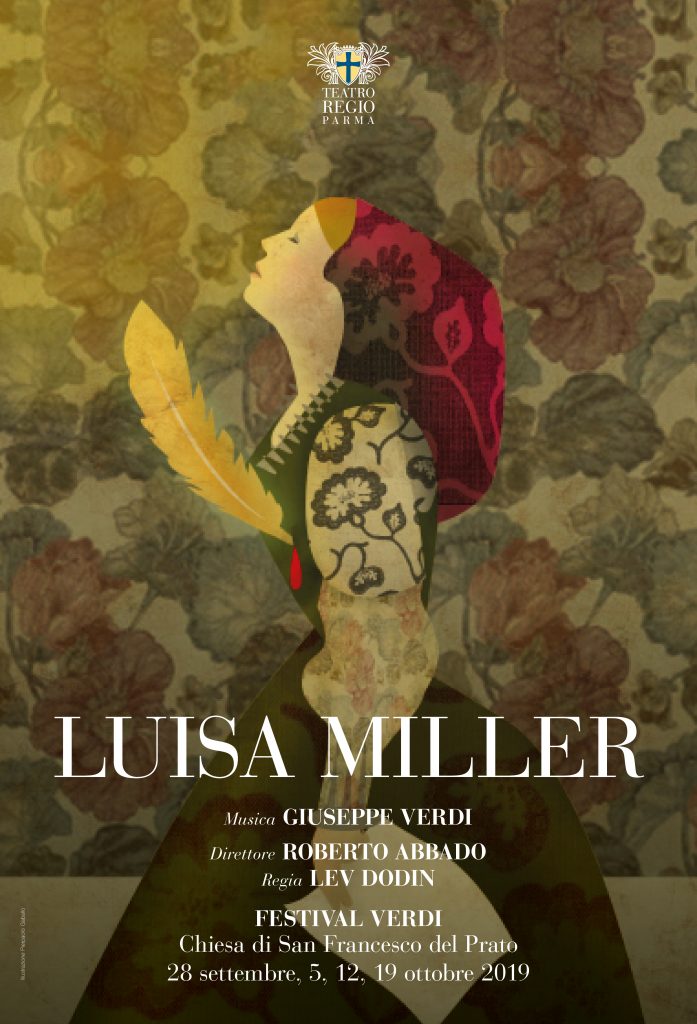
|